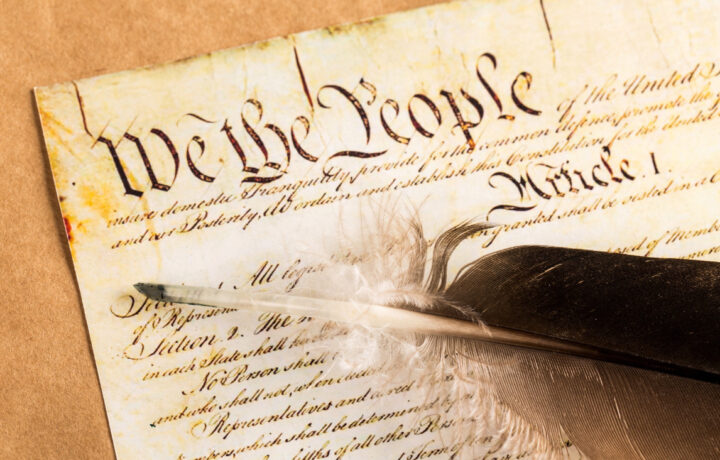From the beginning, the American republic was built on a bargain between the individual and the state. Citizens grant the government limited authority to protect their safety, and in return the state pledges to respect the liberties of its people. This balance, known as the social contract, remains central to both American political philosophy and national security strategy.
The Roots of the Contract
Thomas Hobbes described the social contract as a necessary surrender of certain freedoms in exchange for order. Without it, life in the “state of nature” would be “solitary, poor, nasty, brutish, and short.” John Locke, by contrast, emphasized that government exists only with the consent of the governed, and that liberty and property must remain secure against arbitrary power. The framers of the U.S. Constitution adopted Locke’s vision more than Hobbes’s, designing a system that limited government authority while ensuring security through law.1,2
The Federalist Papers reinforced this balance. James Madison argued in Federalist No. 51 that “if men were angels, no government would be necessary.” The challenge was to create a system that could defend society against both external threats and abuses of power from within. The American solution was a government constrained by checks and balances, accountable to its citizens, yet empowered to provide for their defense.3
National Security as Contractual Obligation
For Americans today, national security is not simply a government function. It is a promise embedded in the contract between the people and the state. The military, intelligence community, and law enforcement agencies act on behalf of the public to defend liberties that cannot survive without protection.
This is especially clear in the field of counterintelligence. Foreign adversaries seek to undermine the American system by exploiting divisions, stealing secrets, or manipulating public trust. Counterintelligence professionals operate at the intersection of liberty and security, defending both classified information and the integrity of the institutions that depend on it. If the government were to neglect this responsibility, it would break faith with the citizens who rely on its protection.
The Dangers of Imbalance
History shows what happens when the contract tilts too far in one direction. In times of crisis, governments often expand surveillance or restrict rights in the name of security. Hobbes would see this as rational; Locke would see it as betrayal. During the Cold War, suspicion often led to overreach, from loyalty oaths to the excesses of McCarthyism. The lesson is that protecting the nation requires vigilance not only against foreign adversaries but also against the erosion of liberty from within.4
On the other hand, if security is neglected, liberty becomes fragile. Attacks on American soil, espionage within critical institutions, or unchecked foreign influence campaigns remind us that freedom without protection can be quickly lost. The challenge for the United States has always been to maintain the balance.
The Strategic Value of the Contract
Adversaries like China and Russia operate without such a balance. Their systems rest on coercion rather than consent, which produces short-term control but weakens long-term legitimacy. America’s credibility, by contrast, comes from the perception that the government serves the people rather than the reverse. This credibility attracts allies, strengthens partnerships, and fuels resilience at home.
Protecting the social contract is therefore a matter of strategy. Citizens who trust their government to respect liberty are more likely to cooperate with security measures, report suspicious activity, and resist foreign manipulation. A society that doubts this trust is more vulnerable to disinformation and division.
Bottom Line
The social contract remains at the heart of America’s national security mandate. It binds the state to the people, ensuring that liberty and protection are not opposing goals but complementary ones. Counterintelligence and other security missions are part of this bargain. They defend not only secrets and infrastructure but also the trust that sustains the republic. Without that trust, America risks losing both its liberty and its security.
Notes
- Thomas Hobbes, Leviathan (1651; repr., Cambridge: Cambridge University Press, 1991), 89.
- John Locke, Two Treatises of Government (1689; repr., Cambridge: Cambridge University Press, 1988), 287–90.
- James Madison, Federalist No. 51, in The Federalist Papers, ed. Clinton Rossiter (New York: Signet Classics, 2003), 320–25.
- Ellen Schrecker, Many Are the Crimes: McCarthyism in America (Boston: Little, Brown and Company, 1998), 211–15.



